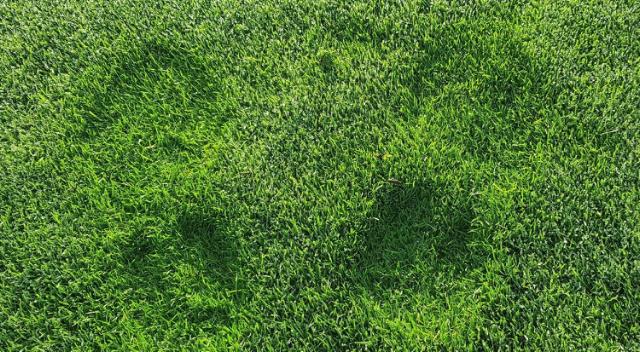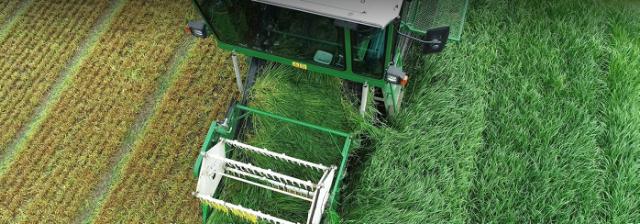INNOVATIVE SOLUTIONS FOR A SUSTAINABLE FUTURE
Innovation takes center stage in our mission to address global challenges. We are dedicated to providing cutting-edge solutions that make a tangible impact on our environment. With a focus on sustainability, we offer a range of innovative approaches to tackle pressing issues.

Impact on climate and environment
We are committed to developing new plant varieties that offer improved climate- and environmental footprints, empowering farmers to enhance their agricultural systems. Improving forage digestibility by advanced selection methods reduces methane emissions from meat- and dairy production and increases production yields at the same time. By incorporating legumes and grasses bred for nitrogen use efficiency, we can reduce nitrogen fertilizer usage and mitigate greenhouse gas emissions associated with manufacturing fertilizers. Introducing diverse pasture mixtures helps improve biodiversity, while the inclusion of grasses in crop rotations aids in carbon sequestration through organic matter build-up. Additionally, the use of plants like plantain can help reduce nitrogen leaching from urine patches in grazed pastures, ensuring better water quality.
Turf
Embarking on our global presence we develop turf varieties, suited for any purpose. We understand the importance of superior turf grasses for sports fields, parks, and lawns. Our innovative turf varieties have been meticulously developed to support more games, exhibiting exceptional wear tolerance, density, disease resistance, weed suppression, and reduced mowing requirements. In our efforts to prepare turfs for more unstable weather conditions and constraints on fertilizer and chemistry we collaborate closely with professionals and scientific experts to improve drought tolerance, disease resistance and weed suppression.

Forage grasses, clovers, and herbs
Our focus on breeding higher yielding and higher quality grasses enables farmers to achieve greater production potential. Through extensive research and development, we have consistently demonstrated genetic gains of 5-10% per decade in forage grasses and clovers. With advanced technologies, such as ‘Genomic Selections’ we aim to push the gains even further. Clover breeding has resulted in more persistent varieties when mixed with grasses, leading to increased nitrogen fixation and improved pasture quality. Furthermore, our advancements in plantain and chicory offer farmers diverse pasture options that deliver both environmental benefits and enhanced livestock nutrition.
Alternative forage crops
In addition to our grass-legume portfolio our breeding also focuses on a range of forage brassicas, including kales, rapes, swedes, turnips, radishes, and raphnobrassicas, serves as a crucial complement to grazed pastures in various regions worldwide. These crops provide reliable and high-quality feed for livestock during winter or dry summers, when grass pastures may be insufficient. We have continuously improved these varieties to enable multiple grazing cycles and introduced herbicide-tolerant options to enhance farmers' convenience and weed control.
Another valuable addition to our forage crop offerings, fodder beets play a vital role in supporting livestock nutrition. These crops deliver high yields of nutrient-rich bulbs during the winter months, thanks to their large size and high energy content.

Together, let's shape a better tomorrow.